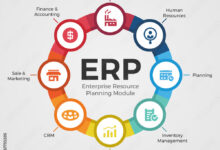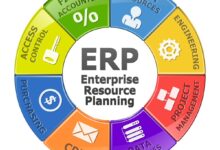SAP S/4HANA Implementation Partner: 7 Ultimate Power Tips for 2024
Choosing the right SAP S/4HANA implementation partner can make or break your digital transformation. With so many options, how do you pick the one that truly delivers? Let’s dive into the ultimate guide to finding your perfect match.
Why You Need a Trusted SAP S/4HANA Implementation Partner

Transitioning to SAP S/4HANA isn’t just about installing new software—it’s a complete business transformation. From finance to supply chain, every department feels the ripple effect of this shift. That’s why partnering with the right SAP S/4HANA implementation partner is not optional; it’s essential.
Complexity of SAP S/4HANA Migration
Migrating from legacy SAP systems like ECC to SAP S/4HANA involves more than data transfer. It requires re-engineering business processes, redefining data models, and aligning IT infrastructure with real-time analytics capabilities. Without expert guidance, companies risk costly delays, data corruption, and operational downtime.
- Data conversion from non-Unicode to Unicode formats
- Custom code remediation due to deprecated tables
- System downtime planning during cutover
“Over 60% of SAP S/4HANA projects face delays due to poor partner selection,” according to a 2023 Gartner report.
Risk Mitigation Through Expert Partnerships
An experienced SAP S/4HANA implementation partner brings proven methodologies, pre-built accelerators, and industry-specific templates that reduce risk. They help you avoid common pitfalls like scope creep, budget overruns, and integration failures.
- Use of SAP Activate methodology for structured rollout
- Pre-configured industry blueprints (e.g., retail, manufacturing)
- Change management frameworks to ease user adoption
Top 7 Qualities of a World-Class SAP S/4HANA Implementation Partner
Not all partners are created equal. To ensure success, you need to evaluate potential SAP S/4HANA implementation partners based on specific, measurable criteria. Here are the top seven qualities that separate the best from the rest.
1. Proven Industry Expertise
A partner with deep experience in your sector—be it healthcare, energy, or consumer goods—understands your unique compliance, reporting, and operational needs. For example, a manufacturer needs different supply chain configurations than a financial services firm.
- Look for case studies in your vertical
- Ask about regulatory knowledge (e.g., SOX, GDPR)
- Verify experience with mergers, acquisitions, or divestitures
2. Certified SAP Expertise and Partnerships
Check if the partner is an official SAP PartnerEdge member or holds SAP Gold Partner status. These designations mean they’ve met rigorous technical and delivery standards. Also, verify the number of certified consultants on their team.
- SAP Certified Application Associates and Professionals
- Specializations in FI/CO, MM, SD, PP, or HCM modules
- Access to SAP Learning Hub and early beta programs
Visit SAP’s official partner directory to validate credentials.
3. Strong Track Record of Successful Implementations
Ask for references and project portfolios. A reliable SAP S/4HANA implementation partner should be able to share at least 5–10 successful go-lives in the past three years. Look for projects similar in size and complexity to yours.
- Number of full-cycle implementations completed
- Average project duration and budget adherence
- Client retention and post-go-live support ratings
4. Use of SAP Activate and Agile Methodologies
The SAP Activate methodology is the gold standard for S/4HANA deployments. It combines predefined content, guided configuration, and agile project management. A top-tier partner will use this framework to accelerate time-to-value.
- Phases: Discover, Prepare, Explore, Realize, Deploy, Run
- Use of SAP Best Practices and Solution Manager
- Agile sprints for iterative development and feedback
5. Robust Post-Implementation Support
Go-live is not the end—it’s the beginning. Your SAP S/4HANA implementation partner should offer comprehensive support, including hypercare, performance tuning, and user training. Downtime after launch can cost thousands per minute.
- 24/7 support SLAs (Service Level Agreements)
- Remote monitoring tools like SAP Focused Run
- Knowledge transfer and internal team enablement
6. Innovation and Integration Capabilities
The best partners don’t just implement—they innovate. They should be able to integrate SAP S/4HANA with emerging technologies like AI, IoT, and blockchain. They also help you leverage SAP Analytics Cloud, SAP BTP, and SAP Leonardo.
- Experience with SAP Business Technology Platform (BTP)
- Custom app development using SAP Fiori
- Integration with third-party systems via SAP PI/PO or CPI
7. Transparent Pricing and Contract Models
Avoid partners who offer unrealistically low bids. These often lead to change orders and hidden costs. Instead, look for transparent pricing models—fixed-price, time-and-materials, or hybrid—based on your risk tolerance.
- Clear scope definition in Statement of Work (SOW)
- Breakdown of licensing, consulting, and infrastructure costs
- Penalties for missed deadlines or SLA breaches
How to Evaluate Potential SAP S/4HANA Implementation Partners
Selecting the right SAP S/4HANA implementation partner requires a structured evaluation process. It’s not enough to rely on reputation alone. You need a scoring system that weighs technical capability, cultural fit, and financial stability.
Step 1: Define Your Project Requirements
Before reaching out to partners, clarify your goals. Are you doing a system conversion, new implementation, or landscape transformation? Define key performance indicators (KPIs) like ROI, TCO, and user adoption rates.
- Scope: Greenfield, Brownfield, or Bluefield approach?
- Timeline: 6 months, 12 months, or phased rollout?
- Budget: Total cost including licenses, hardware, and consulting
Step 2: Shortlist and Screen Candidates
Start with SAP’s partner directory and analyst reports (Gartner, Forrester). Then, narrow down to 5–7 firms. Screen them based on size, geographic reach, and industry focus. Eliminate those without recent S/4HANA experience.
- Check client testimonials on platforms like Gartner Peer Insights
- Review their thought leadership (whitepapers, webinars)
- Assess financial health via Dun & Bradstreet or Bloomberg
Step 3: Conduct In-Depth RFP and Demos
Issue a Request for Proposal (RFP) with detailed questions. Require each SAP S/4HANA implementation partner to present a live demo using your data (anonymized). Evaluate their communication style, technical depth, and problem-solving approach.
- Ask how they handle data migration challenges
- Test their crisis management scenario responses
- Observe team chemistry during workshops
Step 4: Check References and Site Visits
Speak with at least three past clients. Ask about project delivery, issue resolution, and post-go-live support. If possible, visit a client site to see the system in action and talk to end-users.
- “Would you hire them again?” — a telling question
- How were change requests managed?
- Were there any unexpected costs?
Common Pitfalls When Choosing an SAP S/4HANA Implementation Partner
Even experienced organizations fall into traps when selecting a SAP S/4HANA implementation partner. Awareness is the first step to avoidance. Here are the most common mistakes and how to dodge them.
Overlooking Cultural Fit
Technical skills matter, but so does teamwork. A partner with a rigid, top-down approach may clash with your collaborative culture. Misalignment here leads to friction, delays, and poor morale.
- Assess communication frequency and transparency
- Look for partners who co-create rather than dictate
- Ensure bilingual or multilingual support if needed
Choosing Based on Price Alone
The cheapest bid often becomes the most expensive. Low-cost partners may cut corners on testing, training, or security. They might also lack the resources to handle complex integrations.
- Compare total cost of ownership (TCO), not just consulting fees
- Factor in long-term maintenance and upgrade costs
- Beware of offshore-only teams with limited on-site presence
Ignoring Scalability and Future-Proofing
Your business will grow. Your SAP S/4HANA implementation partner should design a system that scales with you. Avoid solutions that lock you into outdated architectures or proprietary extensions.
- Ensure compatibility with SAP’s innovation path (e.g., AI, ML)
- Verify cloud-readiness for future migration
- Check for adherence to SAP’s extensibility guidelines
The Role of SAP S/4HANA Implementation Partner in Digital Transformation
A great SAP S/4HANA implementation partner isn’t just a vendor—they’re a strategic ally in your digital journey. They help you move from transactional processing to intelligent enterprise capabilities.
Enabling Real-Time Decision Making
SAP S/4HANA’s in-memory computing allows instant access to live data. Your implementation partner configures dashboards, KPIs, and predictive analytics so leaders can act fast. For example, a logistics firm can reroute shipments in real time based on weather or traffic data.
- Integration with SAP Analytics Cloud for visualization
- Use of embedded machine learning for forecasting
- Automated alerts for inventory shortages or delays
Driving Process Automation
From procure-to-pay to order-to-cash, your SAP S/4HANA implementation partner can automate workflows using SAP Intelligent Robotic Process Automation (RPA). This reduces manual errors and frees staff for higher-value tasks.
- Automated invoice matching and payment runs
- Self-service portals for employees and vendors
- AI-powered chatbots for HR and IT support
Supporting Sustainability Goals
Modern enterprises are under pressure to report ESG (Environmental, Social, Governance) metrics. SAP S/4HANA includes sustainability modules, and your implementation partner can help you track carbon emissions, energy use, and supply chain ethics.
- Integration with SAP Product Carbon Footprint Analytics
- Real-time monitoring of resource consumption
- Automated ESG reporting for stakeholders
Top SAP S/4HANA Implementation Partners in 2024
While many firms claim expertise, only a few consistently deliver excellence. Based on market share, client satisfaction, and innovation, here are the top SAP S/4HANA implementation partners this year.
1. Deloitte
Deloitte’s SAP practice combines deep technical skills with strategic consulting. They lead in cloud migrations and have a strong presence in North America, Europe, and Asia. Their proprietary tools like SAP RISE accelerators speed up deployment.
- Over 20,000 SAP professionals globally
- Leader in Gartner Magic Quadrant for SAP Services
- Strong focus on sustainability and ESG integration
2. Accenture
Accenture is known for large-scale, complex transformations. They offer end-to-end services from strategy to support. Their SAP Business AI solutions are gaining traction for predictive maintenance and demand planning.
- One of the largest SAP partner networks
- Pioneer in SAP S/4HANA public cloud deployments
- Invested heavily in SAP BTP and integration services
3. IBM
IBM combines SAP expertise with AI and hybrid cloud strength. Their partnership with SAP on RISE with SAP makes them ideal for enterprises seeking cloud flexibility. IBM’s Watson AI can be integrated into SAP workflows for smarter decisions.
- Strong in manufacturing and automotive sectors
- Hybrid cloud expertise via Red Hat OpenShift
- Advanced analytics and AI co-innovation labs
4. Capgemini
Capgemini’s “Intelligent Industry” approach tailors SAP S/4HANA to specific verticals. They emphasize user experience with SAP Fiori and have a robust global delivery model. Their Energy & Utilities practice is particularly strong.
- Over 15,000 SAP consultants
- Leader in SAP S/4HANA for midsize enterprises
- Focus on change management and adoption
5. Infosys
Infosys offers cost-effective, high-quality SAP services with a large offshore team. They’ve developed accelerators like “Panaya” for automated testing and “Live Enterprise” for real-time insights. Ideal for companies seeking value without sacrificing quality.
- Strong in retail, healthcare, and high-tech
- Fast implementation cycles using pre-built templates
- Invested in SAP S/4HANA migration tools
Future Trends: What to Expect from Your SAP S/4HANA Implementation Partner
The role of the SAP S/4HANA implementation partner is evolving. As SAP shifts toward AI-driven, cloud-native solutions, partners must adapt. Here’s what you should expect in the coming years.
AI-Powered Implementation Assistants
Partners will increasingly use AI to automate configuration, testing, and documentation. Tools like SAP Build AI and partner-developed bots will reduce manual effort and improve accuracy.
- AI-driven code conversion recommendations
- Natural language processing for requirement gathering
- Predictive risk modeling for project timelines
Greater Emphasis on Cloud-First Strategies
SAP is pushing RISE with SAP as the preferred cloud offering. Your implementation partner must be fluent in cloud architecture, security, and subscription models. Expect more hybrid and multi-cloud deployments.
- Expertise in AWS, Azure, and Google Cloud integrations
- Cloud cost optimization and governance frameworks
- Zero-downtime migration techniques
Focus on User Experience and Adoption
Even the best system fails if users don’t adopt it. Future partners will invest more in UX design, gamified training, and continuous feedback loops. SAP Fiori apps will be central to this strategy.
- Personalized dashboards and role-based interfaces
- Mobile-first design for field workers
- Adoption analytics to track login rates and feature usage
What is an SAP S/4HANA implementation partner?
An SAP S/4HANA implementation partner is a certified consulting firm that helps organizations plan, deploy, and optimize SAP S/4HANA. They provide technical expertise, project management, and industry-specific knowledge to ensure a successful transition.
How long does an SAP S/4HANA implementation take?
Timeline varies by scope: greenfield implementations take 9–15 months, brownfield (system conversion) take 6–12 months, and selective data transition can be done in 4–8 months. A skilled SAP S/4HANA implementation partner can accelerate this using accelerators and agile methods.
What are the costs involved in hiring an SAP S/4HANA implementation partner?
Costs range from $500,000 for midsize firms to over $10 million for large enterprises. This includes consulting fees, licensing, infrastructure, and training. The partner’s pricing model (fixed, T&M, or hybrid) significantly impacts total cost.
Can I implement SAP S/4HANA without a partner?
Technically yes, but not advisable. SAP S/4HANA’s complexity, especially in data migration and integration, requires specialized skills. Most companies lack internal resources for a full-cycle implementation, making a SAP S/4HANA implementation partner critical for success.
How do I verify a partner’s SAP credentials?
Use SAP’s official Partner Finder tool. Check for certifications, customer references, and participation in SAP events. Also, review third-party analyst reports from Gartner or Forrester.
Selecting the right SAP S/4HANA implementation partner is one of the most strategic decisions you’ll make. It’s not just about technical delivery—it’s about partnership, vision, and long-term value. By focusing on expertise, methodology, support, and innovation, you can ensure a smooth transition to SAP S/4HANA and unlock the full potential of your digital enterprise. Don’t rush the selection process; invest time upfront to save millions and months down the road.
Further Reading:







